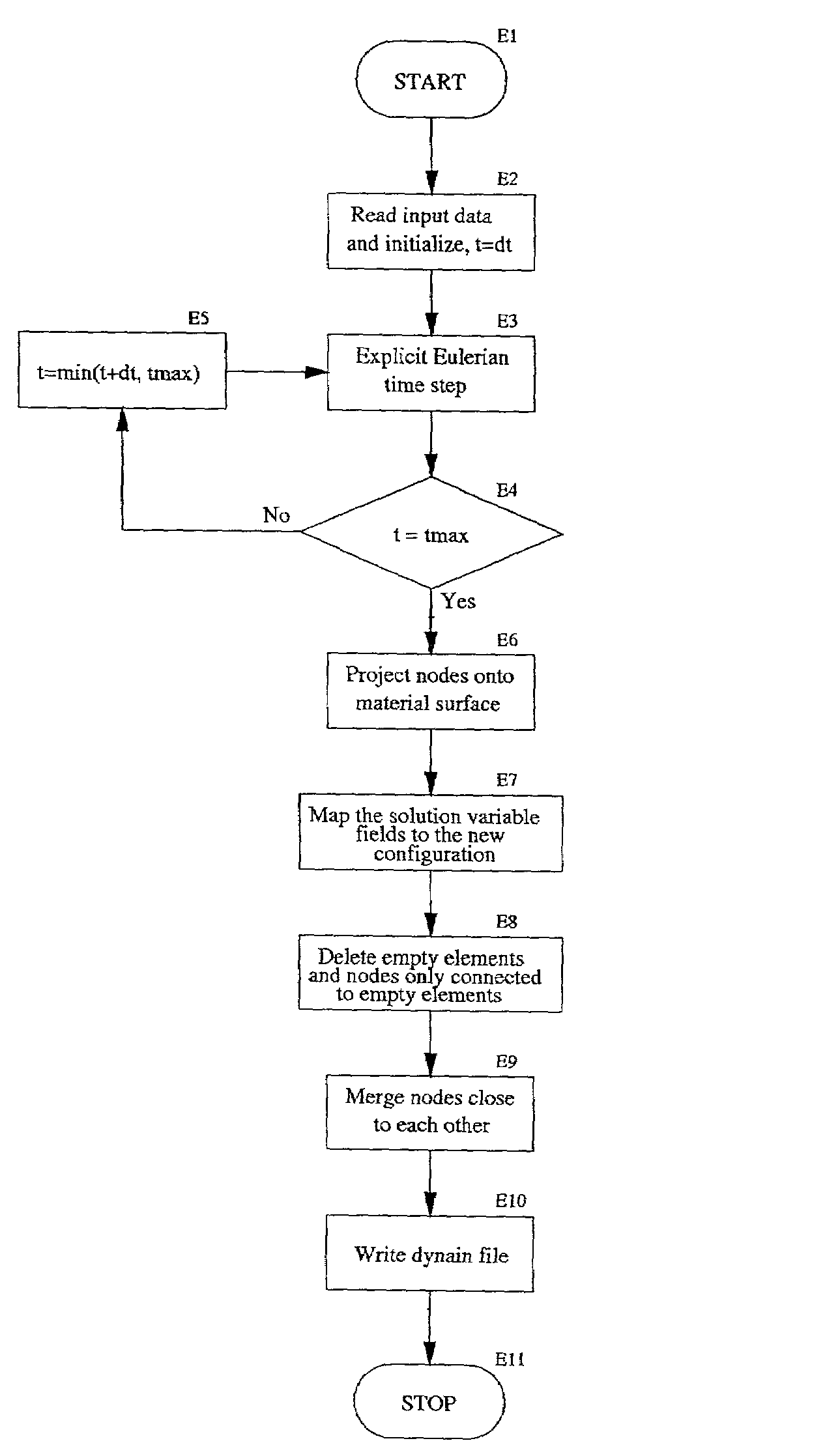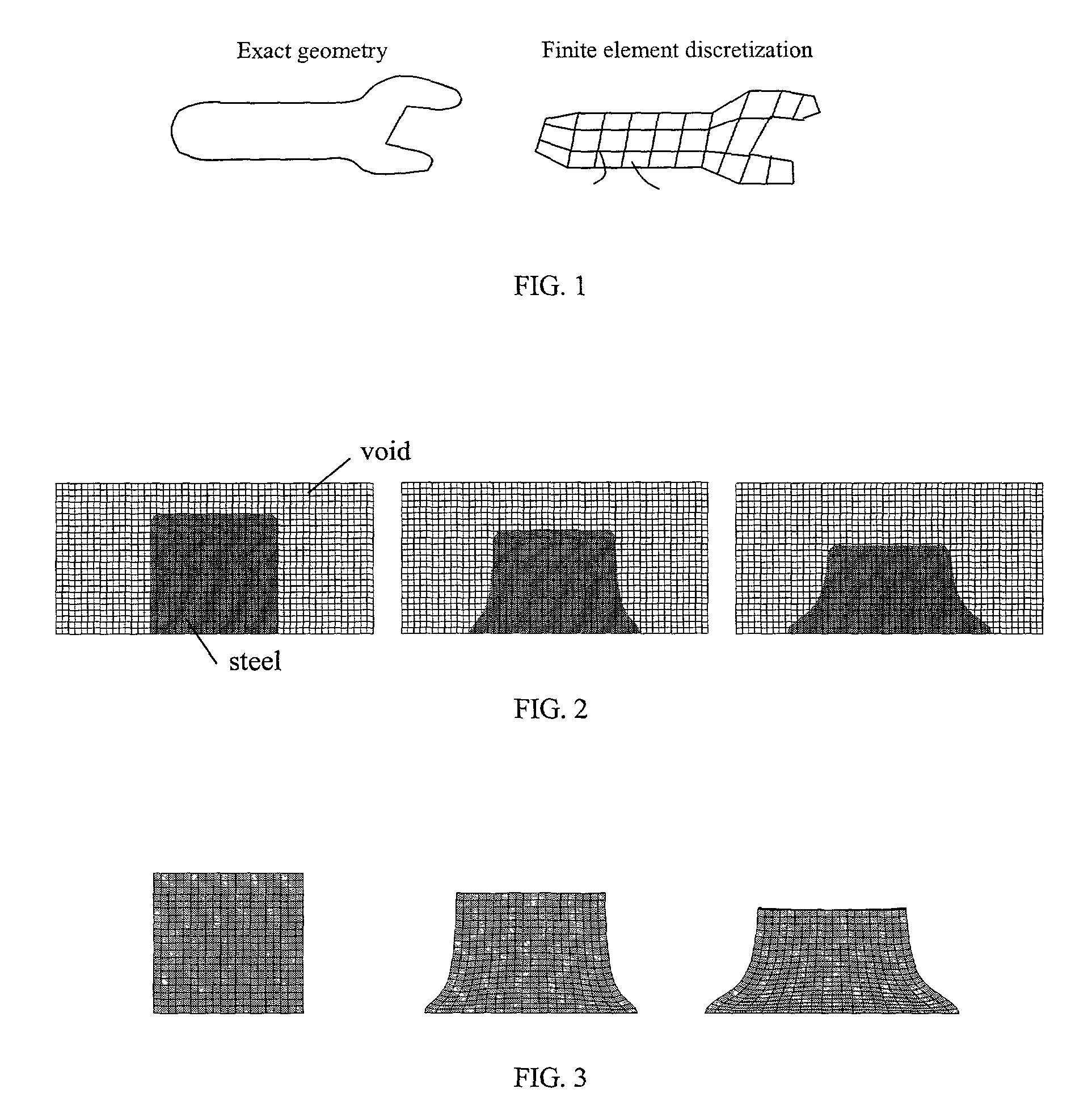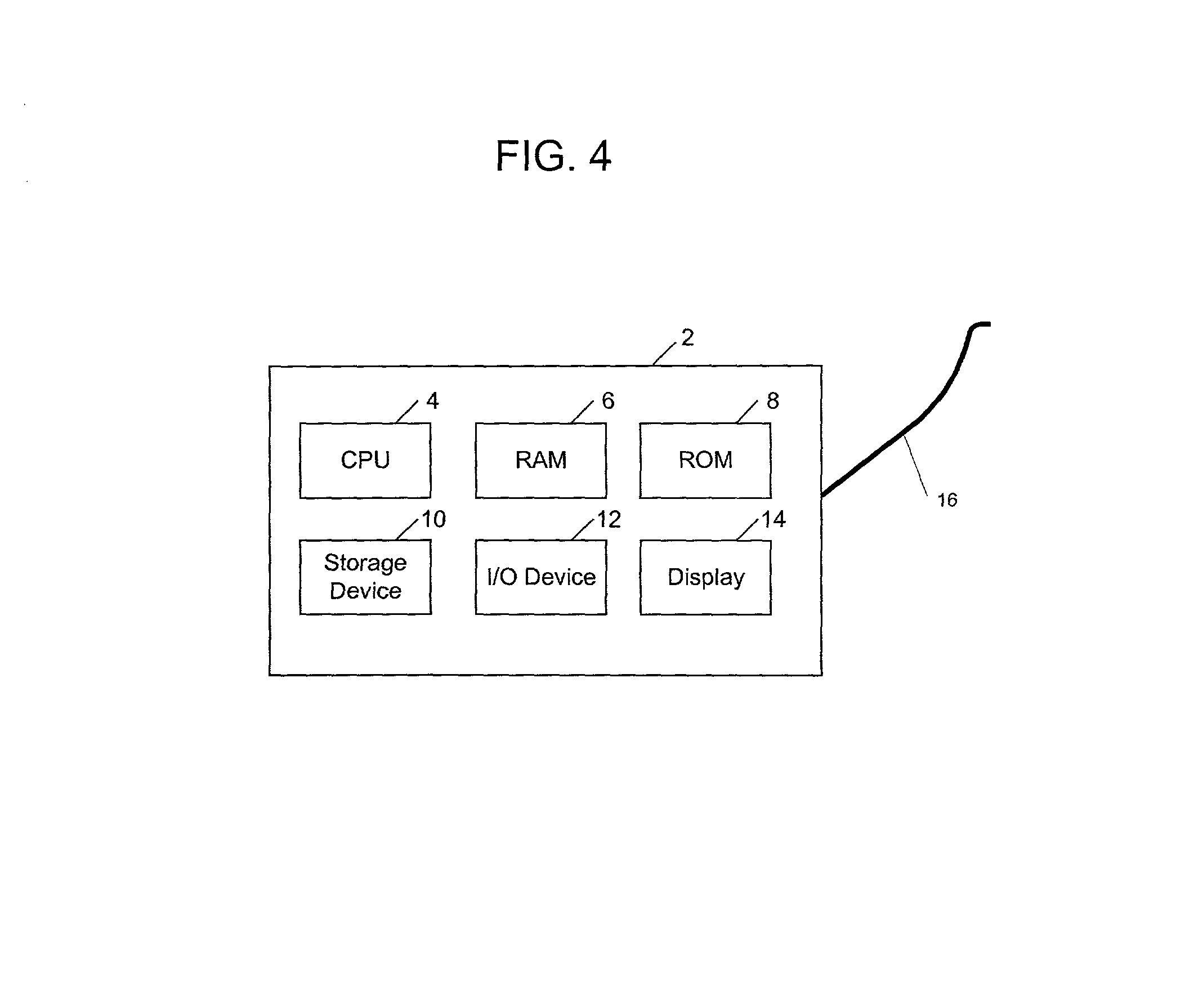Eulerian-Lagrangian mapping for finite element analysis
a finite element analysis and lagrangian mapping technology, applied in the field of computer simulations using the finite element method, can solve the problems of distorted elements, inability to accurately integrate, and general over-complexity of equations describing the physical event of interest to be solved exactly
- Summary
- Abstract
- Description
- Claims
- Application Information
AI Technical Summary
Benefits of technology
Problems solved by technology
Method used
Image
Examples
Embodiment Construction
[0040]The preferred embodiments of the present invention and their advantages are best understood by referring to FIGS. 1 through 5 of the drawings. Like numerals are used for like and corresponding parts of the various drawings.
System Overview
[0041]FIG. 4 is a block diagram of an exemplary computer system 2 upon which the methods of the present invention can be performed, according to an embodiment of the present invention. Computer system 2 can include one or more suitable processing facilities such as microcomputers / workstations, minicomputers, mainframes, and / or massively parallel processing computers running suitable operating systems. Examples of suitable microcomputers / workstations include the IBM PC from IBM Corporation of Armonk, N.Y., and the Sparc-Station from Sun Microsystems Corporation of Mountain View, Calif. Examples of suitable minicomputers are the VAX 750 from Digital Equipment Corporation of Maynard, Mass. and the AS / 400 from IBM. An example of a suitable mainfra...
PUM
 Login to View More
Login to View More Abstract
Description
Claims
Application Information
 Login to View More
Login to View More - R&D
- Intellectual Property
- Life Sciences
- Materials
- Tech Scout
- Unparalleled Data Quality
- Higher Quality Content
- 60% Fewer Hallucinations
Browse by: Latest US Patents, China's latest patents, Technical Efficacy Thesaurus, Application Domain, Technology Topic, Popular Technical Reports.
© 2025 PatSnap. All rights reserved.Legal|Privacy policy|Modern Slavery Act Transparency Statement|Sitemap|About US| Contact US: help@patsnap.com



